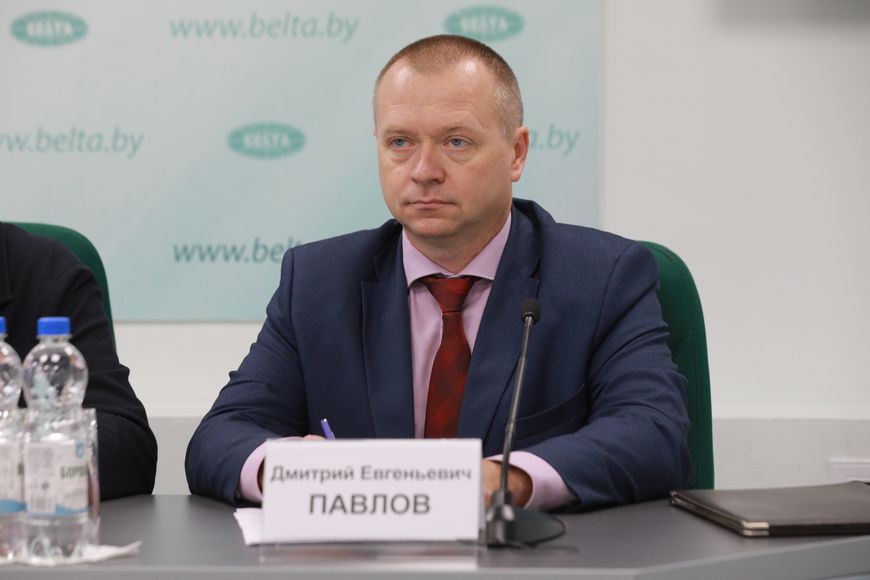Belarus, Russia to continue cooperation in nuclear, radiation safety
MINSK, 11 October (BelTA) - Belarus and Russia will continue to develop cooperation in nuclear and radiation safety as well as in other areas. The two countries are mulling over a number of joint programs, Head of Radioactive Waste Management Department of the Nuclear and Radiation Safety Department of the Belarusian Emergencies Ministry (Gosatomnadzor) Dmitry Pavlov told the media at BelTA's press center.
“Russia has been actively assisting us in radioactive waste management, nuclear heritage facilities. Rosatom's fuel company TVEL is the CIS basic organization for decommissioning of nuclear and radiation hazardous facilities. A number of measures have been suggested for implementation in cooperation with it. A comprehensive program of cooperation with Rosatom in nuclear non-energy and non-nuclear projects is under development. The program will bring benefits. We recommended the regions affected by the Chernobyl accident to consider participation in individual pilot projects,” Dmitry Pavlov said.
Belarus also counts on the implementation of a number of Union State programs. “A lot of research is needed for the construction of a radioactive waste disposal facility. As one of the tools proposed is the development of the Union State program to ensure safety in radioactive waste management. Another promising area is the development of the Union State program to address the issues of import substitution in the production of ionizing radiation detectors and components with the working name “Crystals and Detectors”. In addition, a new program of joint activities to overcome the consequences of the accident at the Chernobyl NPP is in the works,” the representative of Gosatomnadzor said.

A lot of attention in Belarus and Russia is also focused on the issues of emergency preparedness and response to radiation accidents. The parties are considering the implementation of a program of joint activities.
The second power unit of the Belarusian nuclear power plant (BelNPP) will soon be commissioned. “Belarus sees further cooperation with Russia in the implementation of a program with the working name VVER-1200. The program can include activities related to the study, provision, methodological support of measures for the operation of power plants similar to the one used in Belarus,” Dmitry Pavlov said.
As for the Polesie State Radiation and Ecological Reserve and the radioactive contamination area in general, the work in nature protection is supported by Russia. “There are also proposals on the use of the affected territories in the issues of biodiversity development, in the climate agenda. Russia has the East Ural radiation footprint in Chelyabinsk Oblast, and also facilities located in the Arctic belt, where Rosatom is currently doing tremendous work to bring them to a safe condition. We can deal with these issues together,” the Gosatomnadzor representative said.













